Problem-Solving Skills Life Science Worksheets for Ages 4-6
3 filtered results
-
From - To
Discover our engaging Problem-Solving Skills Life Science Worksheets designed specifically for children aged 4-6! These interactive worksheets help young learners explore vital life science concepts while developing essential problem-solving abilities. Through fun activities and scenarios, children will enhance their critical thinking skills, encouraging them to analyze situations and arrive at solutions. Our easy-to-follow worksheets provide a perfect blend of education and creativity, making learning enjoyable. Perfect for at-home learning or classroom use, these resources support early science education while fostering a love for inquiry and discovery. Inspire the young scientists in your life with our captivating life science challenges today!
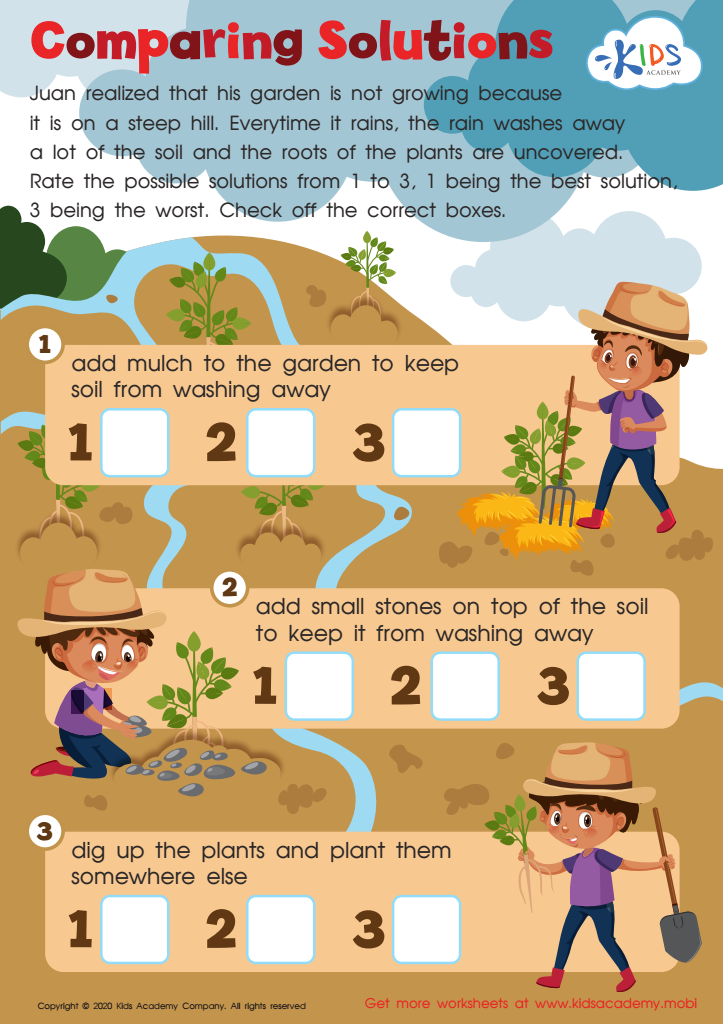

Comparing Solutions Worksheet
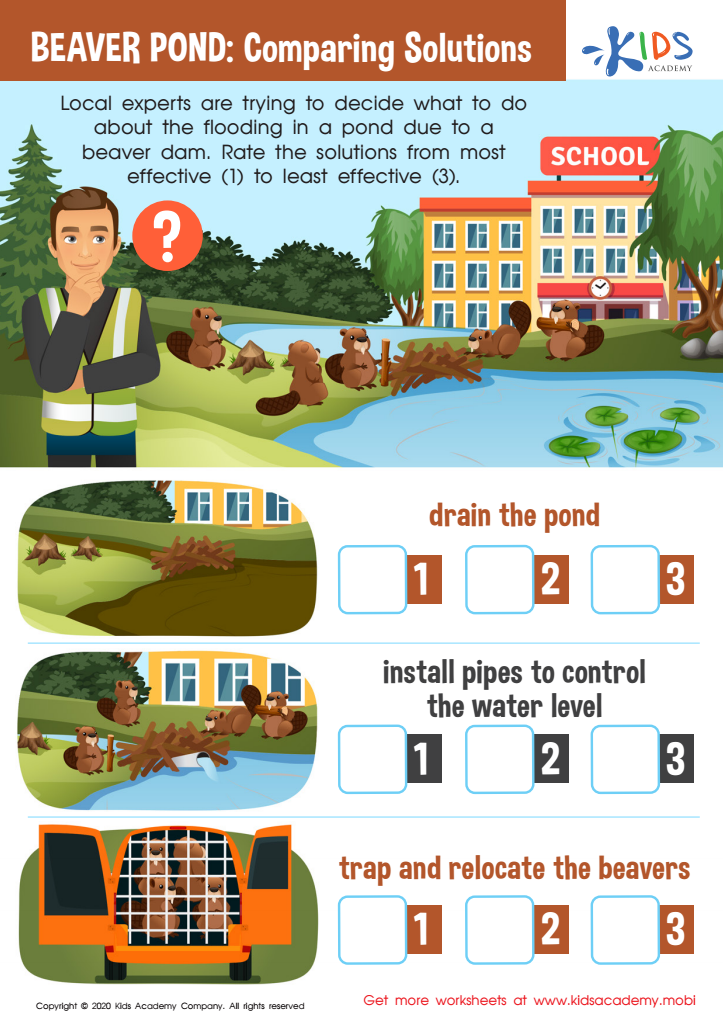

Beaver Pond: Comparing Solutions Worksheet
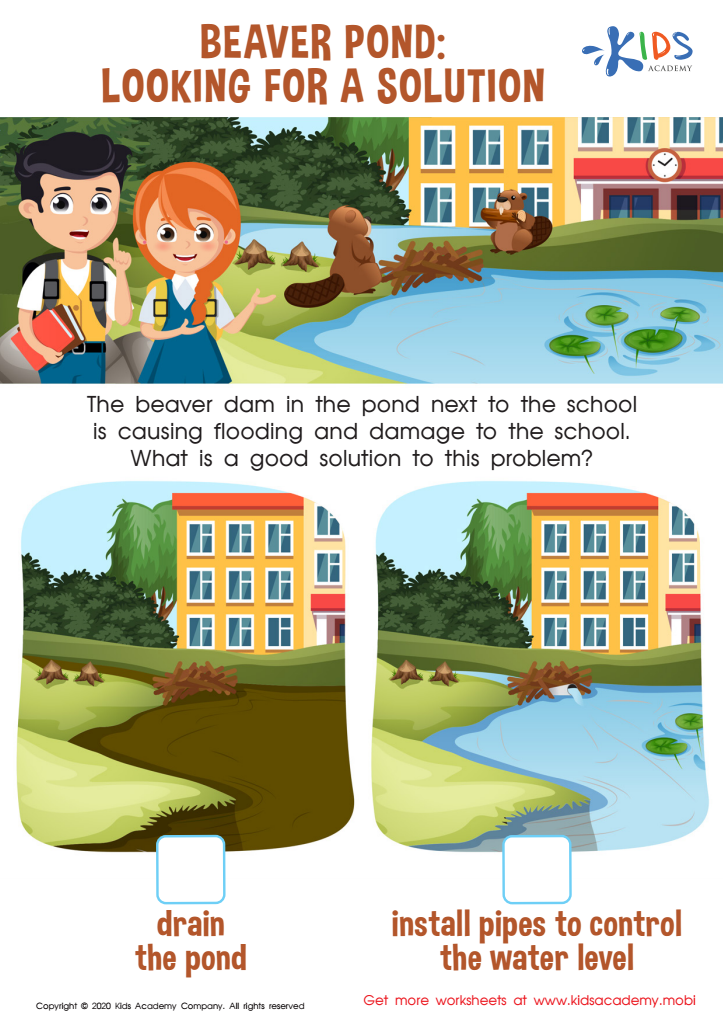

Beaver Pond: Looking for a Solution Worksheet
Problem-solving skills are crucial for young children, especially in the context of life sciences, as they embody critical thinking and inquiry that is vital for understanding the world around them. For parents and teachers of children aged 4-6, nurturing these skills fosters a sense of curiosity and encourages a scientific mindset from an early age.
In life science, problem-solving skills help children explore concepts such as the life cycle of plants and animals, understanding ecosystems, and the relationships between living organisms. Through hands-on activities, like planting seeds or observing insects, children learn to ask questions, hypothesize, experiment, and evaluate results. This process not only deepens their comprehension of biological concepts but also enhances their ability to think logically and strategically.
Moreover, developing problem-solving skills in life science promotes perseverance and adaptability. When children face challenges, they learn to approach problems with creativity and resilience, valuable traits that extend beyond academics. Parents and teachers who prioritize these skills contribute to fostering analytical thinkers prepared for future challenges, instilling a lifelong love of learning while helping them understand their role in the environment. By focusing on problem-solving in life science, adults can empower children to become thoughtful observers and informed decision-makers.
 Assign to My Students
Assign to My Students



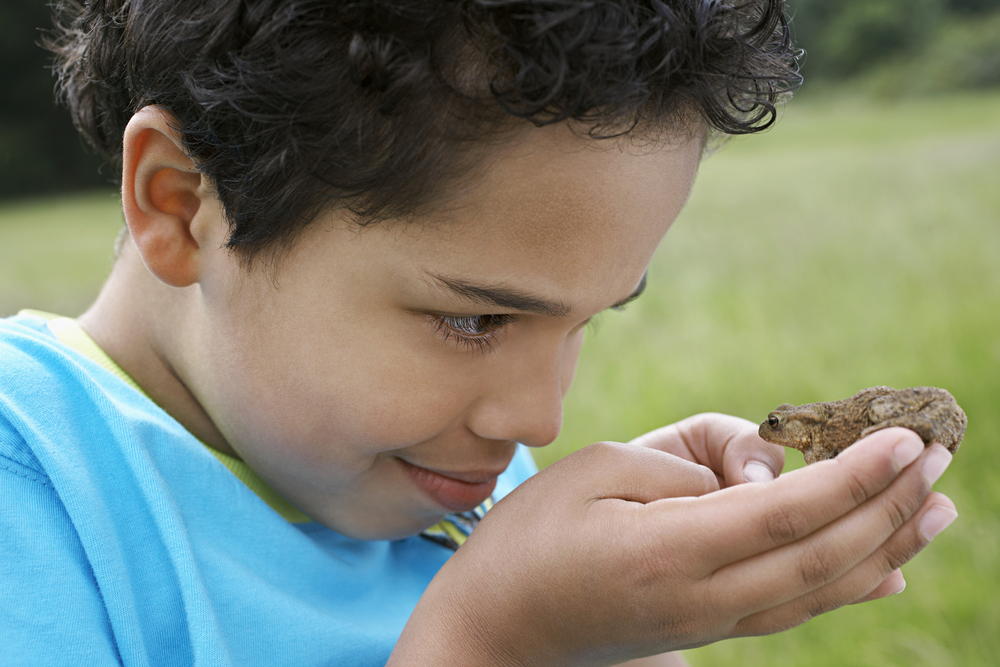
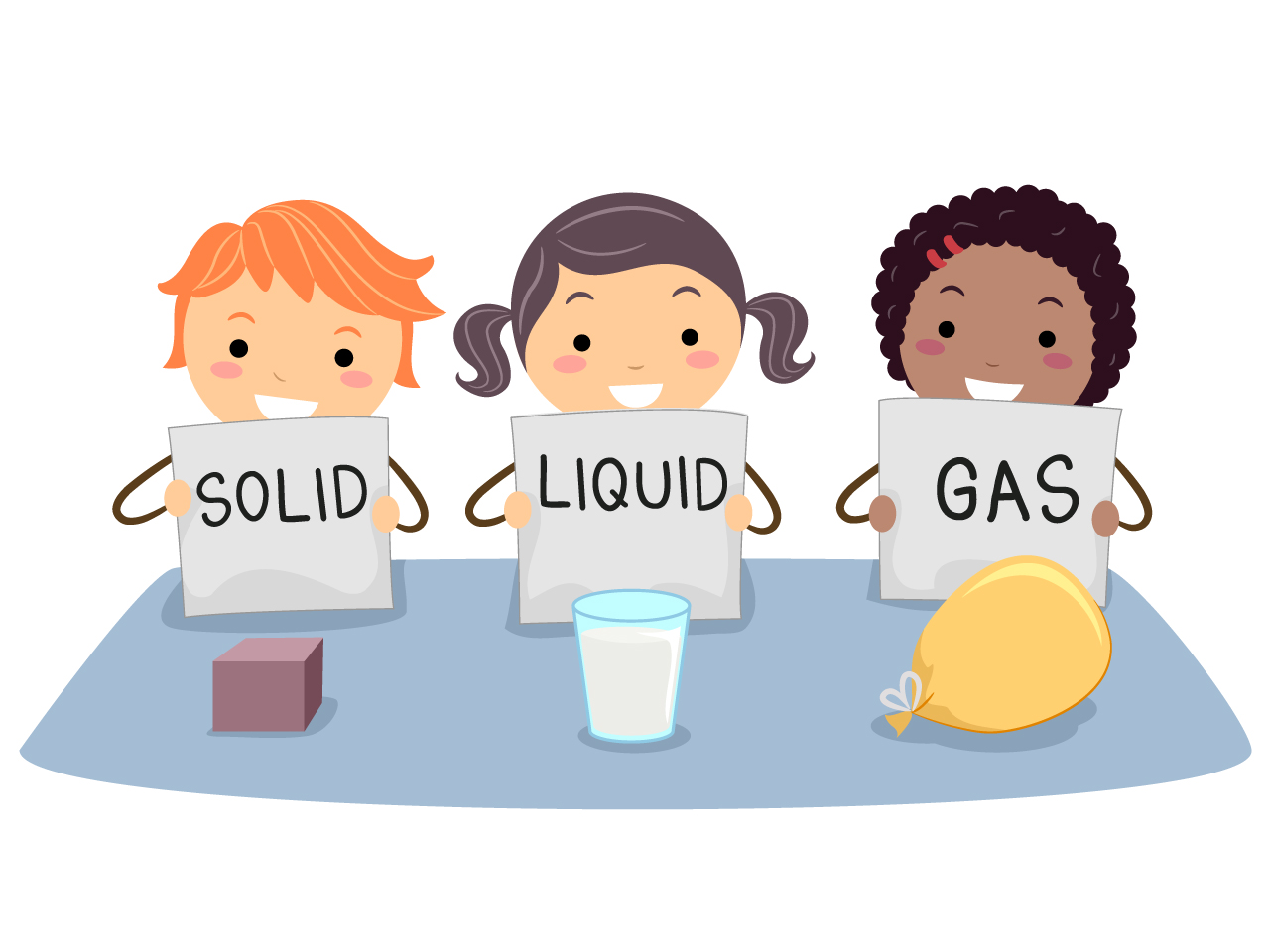
%20(1).jpg)

.jpg)








